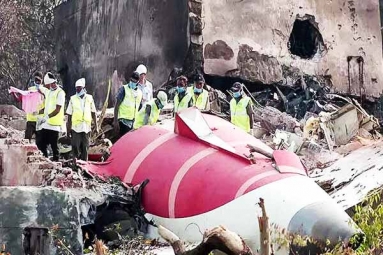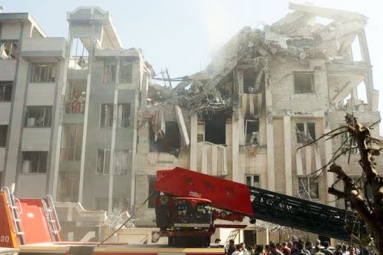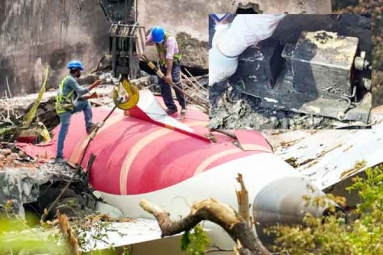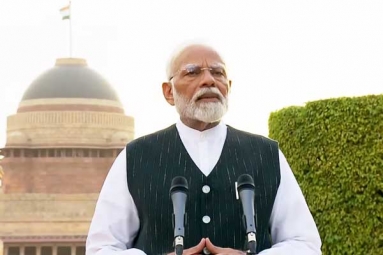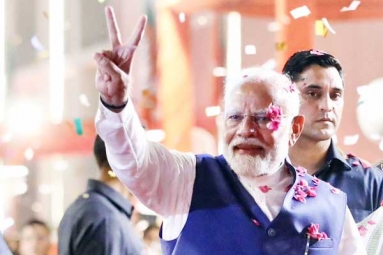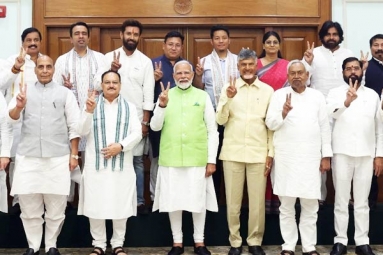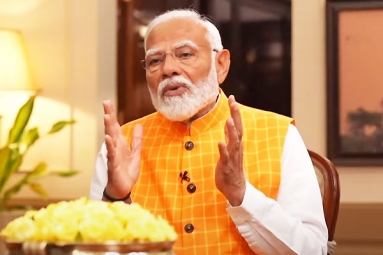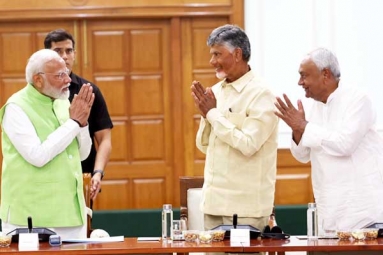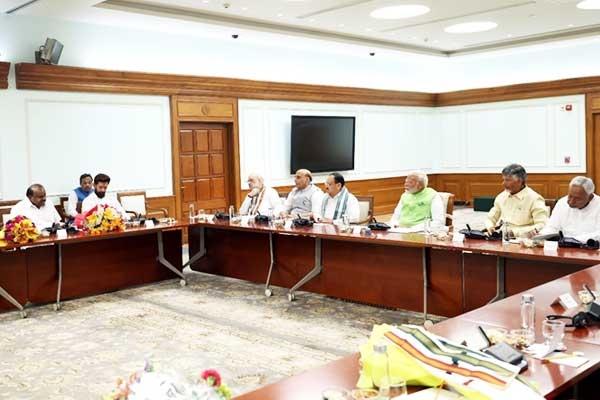
(Image source from: x.com/narendramodi)
In the aftermath of the Lok Sabha election results, the BJP has fallen short of a clear majority, leading its NDA allies to vigorously negotiate for influential positions at the central government. Although the BJP is reluctant to relinquish key ministries and roles, the alliance partners, including seasoned coalition-era leaders like N Chandrababu Naidu and Nitish Kumar, have emerged as kingmakers. These allies, who collectively control a significant number of seats, are working under a tight timeline to reach a consensus as preparations are made to swear in Narendra Modi's third government this weekend. The TDP, with 16 seats, is said to have sought the Lok Sabha Speaker's post, while the JDU, with 12 seats, may push for a Common Minimum Programme and a coordination committee led by Nitish Kumar to oversee its implementation. The bargaining power of these allies has become crucial for the BJP to form a majority government, as it now faces a tight deadline to accommodate their demands.
The BJP is reluctant to surrender the Speaker's position, but may offer the TDP a Deputy Speaker role. JDU already holds the Rajya Sabha Deputy Chairman post. This time, the BJP may need to distribute ministerial positions proportionally to the seats won by each ally, unlike the previous governments where the BJP had an outright majority. However, the BJP is not inclined to allow allies in four key ministries under the Cabinet Committee on Security: defence, finance, home affairs, and external affairs. Additionally, the BJP will aim to retain control over portfolios crucial to its infrastructure and welfare initiatives, such as road transport, highways, and programs targeting the poor, women, youth, and farmers. The BJP's focus on building roads and highways during Narendra Modi's previous tenures has been widely recognized.
Improving access to distant places has been a key focus. The ruling party is careful not to risk losing its current momentum by handing over responsibilities to its political partners, according to reliable sources. Another important portfolio is railways. While sources in the JDU say they would like to take over the railway ministry, which was previously held by Nitish Kumar, BJP voices say major reforms are underway in the sector and any disruption could hamper this. In the last two Narendra Modi governments, allies have been involved in relatively less important sectors such as food processing and heavy industry. However, since there is no unified majority this time, the BJP may have to agree to some of the demands of the alliance parties. According to sources, JDU may get portfolios like Panchayat Raj and Rural Development, while TDP may get civil aviation and steel. However, the BJP may try to appoint representatives from federal parties to ministerial posts in key ministries such as finance and defence. The BJP may also hand over other portfolios including tourism, skill development, science and technology and earth sciences.






